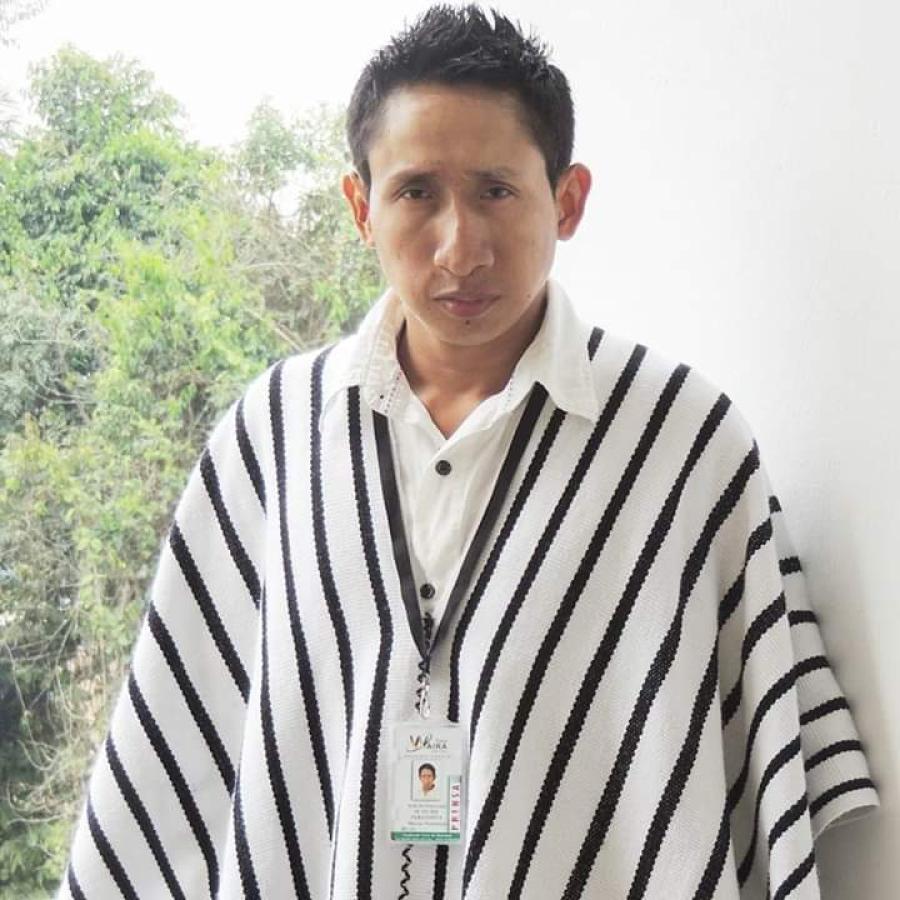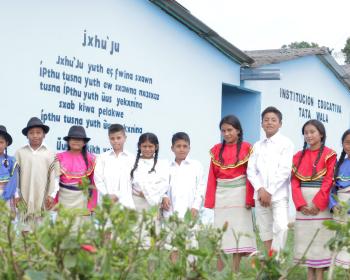Wayúu indigenous people from Alta Guajira region of Colombia have asked for international help in the wake of a brutal attack on the town of Bahía Portete.
Roughly 150 armed men arrived at 7:30 a.m. on April 18 and surrounded the town. According to Amnesty International, the paramilitaries interrogated children while the men were out fishing or at work, killing some and torturing others to determine the whereabouts of their parents. At least 12 people are dead and 30 more have disappeared, 20 of them minors. Wayúu authorities say they requested help from the government three days before the massacre, but their cry went unheeded.
A commission coordinated by the National Indigenous Organization of Colombia (ONIC) and made up of representatives from ONIC, the Ombudsman's office, the Colombian office of the U.N. High Commissioner for Refugees (UNHCR), and several regional indigenous organizations visited the region beginning May 22 and verified reports of the massacre. To date, only three bodies and parts of a fourth have been found. Residents claim that the majority of the victims were burned.
Various news organizations report that between 400 and 2,000 people have now fled their homes in the Guajira as a result of the massacre. Venezuelan authorities have created humanitarian and security commissions and a registry office for refugees, reported Actualidad Etnica in May. Wayúu ties to communities in Venezuela have eased the refugee situation—refugees have dual nationality if they display a command of Wayunaiki, the Wayúu language—but have created the fear that the Colombian government will see refugees as a security threat.
Colombian newspaper El Tiempo reported on May 22 that Colombian Colonel Nelson Chawes was quick to characterize the massacre as a result of conflict between paramilitary groups under the umbrella of the United Self-Defense Forces of Colombia (AUC) and guerilla groups allied with the Revolutionary Armed Forces of Colombia (FARC). But experts from the Colombia Solidarity Campaign say that while FARC is involved in illicit drug production and trafficking elsewhere in Colombia, there is no FARC presence in the middle and upper Guajira.
Conservative estimates show that more than 350,000 people have been displaced in other parts of Colombia as a result of massacres on both sides of the conflict, but Colombian and international human rights groups attribute the vast majority of massacres to the paramilitaries. A Wayúu spokesman told Venezuelan newspaper Últimas Noticias that paramilitary groups were brought to the area three years ago by capos and local families to protect supply routes for arms, drugs, and contraband. They are united under the control of Jorge Tovar Pupo, known as "Jorge 40."
According to El Tiempo, a source claimed the massacre was in retaliation against a group including some Wayúu who allegedly stole cocaine from Jorge 40 in early March. A source for Colombian newspaper El Espectador characterized the massacre as part of a "fight to the death" between a group of indigenous people and the AUC for control of the port of Portete Bay.
Although coca is not grown in the area, Bahía Portete has been a commercial success for the last five years as the point of entry for the majority of the country’s contraband, moving more than $3 million daily and employing 3,000 indigenous people, many of whom don’t consider smuggling an illicit act.
Fighting for control of the port escalated over the last year. A local retailer told El Tiempo that whoever does not pay taxes to the paramilitaries "is a dead man," citing 58 assassinations in the past year. Most of the massacre victims came from families in control of the port.
The situation is complicated by the presence of Latin America’s largest coal strip mine, El Cerrejon Zona Norte, which has forced the displacement of hundreds of Wayúu and Afro-Colombians.
Residents of the Guajira say that families were never before forced to flee on account of interethnic conflict. The April massacre went unreported for weeks, largely due to fear on the part of both victims and civil employees.
"Many Wayúu people are terrified about speaking of this massacre," said Richard Solly of the Colombia Solidarity Campaign. "It is unprecedented in their experience, deeply unsettling, and they are very worried about the impacts on their families if they speak out about it."
The Wayúu have asked for international help: "In the face of these deplorable events we as an indigenous organization ask you to guard our protection, to serve as an intermediary for us to Human rights organizations, the UN and the Colombian state," said a May 3 communiqué from community members.
But other Wayúu have threatened retaliation, saying they have secured the safety of women and children and have returned to fight for their land, aided by Wayúu from Venezuela. "We are going to apply our own law, because the justice of the courts only serves to help the assassins," a man named Juchi told Últimas Noticias. He said his community has no alternative than to go to war against the regime. "We want President Uribe, who gives so much help to the paramilitaries, to know that we still exist, that we are human beings even if he doesn't like it, and that we will make him respect our rights, even if hundreds or thousands of the Wayúu have to die for it."
The UNHCR has requested international protection for refugees in Venezuela, but prospects for their return to the Guajira are not promising.
"We want to return to our land, but the Colombian government must guarantee our security," said Maria, a refugee, in an interview with Últimas Noticias. She managed to survive because she ran "as she’d never done before in her life."
Julia Ris and Carlos Camelo contributed to this report.


